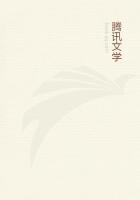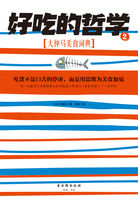The revenue most easily attained by taxation is that which proceeds from land; because this species of wealth cannot be concealed from sight; because, without the proprietor's declaration, the value of it may be known, and because, in gathering the produce at the moment when nature grants it, we are sure exactly to meet the proprietor's convenience for paying it.
But economists are divided in opinion as to the two modes of collecting this tax, the one in kind from the unaltered product, the other in money from the proprietor's net revenue.
Tithes, a tax, according to the first of those methods, is leveled at the moment of abundance, before the producer has in any shape taken possession of his property. The rule, according to which tithes are established, is so universal, that few discussions or vexations arise from it, and this gives it a great appearance of equality. The collection of a tax in kind requires a great number of clerks and warehouses, and hence it is expensive; but this inconvenience might be repaid, if government, after the collection, kept in its granaries the corn delivered to it, till a period more favourable for sale. As cultivators generally cannot wait for this period, the loss suffered by a premature sale would, perhaps, of itself, cover all the charges of collection. Combining such advantages, a national impost in the shape of tithes has seduced many political speculators.
Tithes have also been defended with obstinacy by the powerful body to whom they are in general abandoned. Those advantages do not extend to what are called small tithes, an impost vexatious in all its details; the difficult collection of which is an ever fresh root of hatred between the curate and his parishioners, though the impost was intended to unite them all as a single family.
But the advantages of tithes, in any shape, are more than compensated by their real inequality, and the obstacles they oppose to industry. The expense of cultivation is far from being the same in good and in bad soils; in good and bad years; yet the reimbursement of that expense is made by part of the crop, and this part at least should not be subjected to any tax, for fear of destroying the reproduction of the following year. It is not the revenue alone that is tithed; but at the same time all the seed, the manure, the days of labour, which have produced the crop: for all this, the latter ought to restore. In good years, and good soils, two sheaves in ten may represent all these advances: in bad years or soils, eight in ten scarcely cover them; it is not very rare even that the whole crop is insufficient to pay the expenses. Tithes, however, are equally levied in all those cases; from the first they take an eighth part of the land revenue; from the second a half; from the third, which is nothing, they take a portion of the capital destined to produce the following crop; and their inequality is the more cruel, because it is always the poor whom they oppress, taking most from the very persons whose necessity requires most moderation.
Again, the more productive a mode of cultivation is, the more advances does it need to have committed to the ground. Tithes, which are but the seventh or eighth part of the revenue in a pasturage, become the fifth in a field of corn, the third in a vineyard, the half in a hop-yard or in a field of hemp, and the whole in a garden. Thus whilst the national interest incessantly requires the raw produce to be incessantly increased by committing larger advances to the ground-tithes instruct the cultivator incessantly to diminish his advances, and follow that species of culture which gives back least to the nation, but which also least exposes him who undertakes it to be punished for his industry.
The land tax has not the same inconveniences; it affects only the net revenue; it is enabled to reach it with equality enough, and above all, with a regularity which screens the contributor from every arbitrary proceeding, and which, therefore, is to him more precious than justice itself. On being established, it strips the proprietor of a considerable portion of his fortune, for he loses all at once a part of the very capital whose rent alone must pay the tax; but this loss, after having stuck him, is never repeated. From that time he no longer looks upon this capital as belonging to him; a new purchaser, on buying the land, does not pay him any price for this portion; the state has become thenceforth its true proprietor. On the other hand, this territorial impost often requires money from such as have none; it forces them to sell their commodities to obtain the quantity wanted, perhaps at the most unfavourable moment; and it thus contributes to cause a glut in the market at the moment of harvest, and a scarcity at the year's end. Besides, if too heavy, it discourages the proprietor from laying out new advances upon land which he looks upon as scarcely any longer his.
If the capitalist could as easily be come at as the proprietor of land, it would be quite as just to tax him directly for the support of a government which guards his property. The interest of money would be a taxable material, fully as suitable as the rent of land. But the capitalist' s wealth cannot be known without a vexatious inquest, which, in trading counties, would be destructive to credit. Capitals, moreover, are not attached to the soil, and if loaded with imposts, the capitalist would be induced to transmit them into other counties, often without emigrating himself. He would thus deprive his country of all the labour which those capitals would support; he would diminish the national revenues in a proportion immensely superior to the advantages which the treasury could expect from the new tax.














